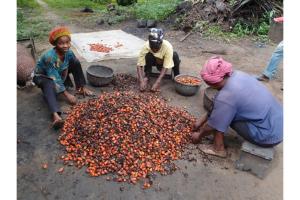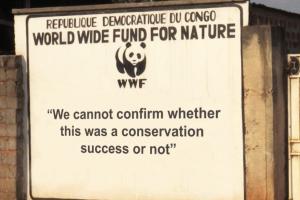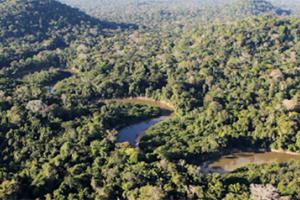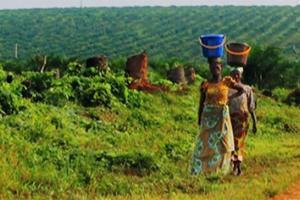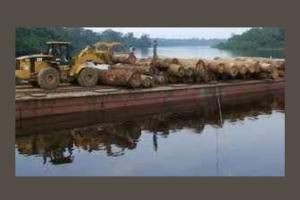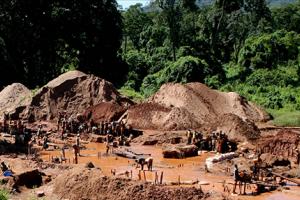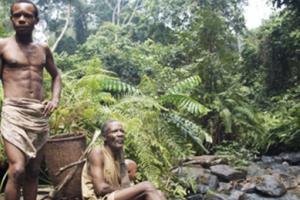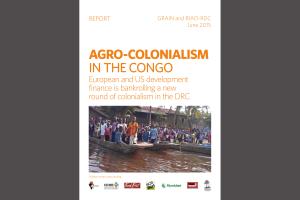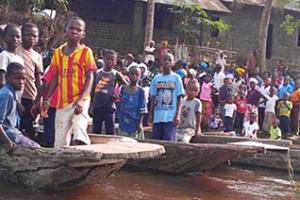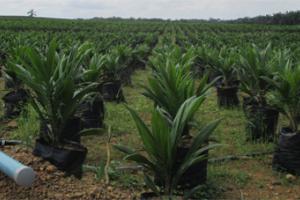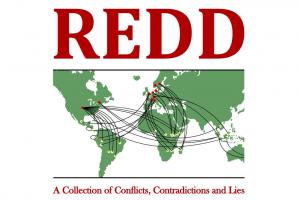A video produced by GRAIN shows how rural women in West Africa are working to protect traditional palm oil production in the face of the destructive expansion of industrial oil palm plantations.
Watch the video here.
Congo DR
Other information
5 February 2016
.
Bulletin articles
15 October 2015
Interview with Jean-François Mombia on oil palm plantations
Could you tell us what is the RIAO-RDC (Information and Support Network for national NGOs-Democratic Republic of Congo) and what are its main activities?
Other information
16 September 2015
A report from the Rainforest Foundation UK, shows how attempts of community based forest management in the Congo Basin thus far have not been able to transfer meaningful rights or benefits to local communities. Only around 1% of the total Congo Basin is under the formal control or management of local communities while industrial-scale logging represents by far the biggest land use in the region.
Other information
16 September 2015
A video from the NGO Global Witness, who visited many communities in DRC directly impacted by the logging industry, shows the reality of these concessions on the ground. Mostly, the same story repeated itself. Communities have had no positive effects since logging companies started operating, resources they depend upon have become scarce and rivers are drying up, while promises of developmental projects and employment have vanished. “We have no voice.
Bulletin articles
10 August 2015
Reseau CREF (Network for Conservation and Rehabilitation of Forest Ecosystems) is a platform of organizations working on governance of natural resources in the province of North Kivu. Among others, it intervenes in the governance of the mining sector through its program “Mines and Hydrocarbons”.
Context of the province of North Kivu, Democratic Republic of Congo
Bulletin articles
10 July 2015
Publications
1 June 2015
Report about how several prominent development finance institutions (DFIs) are funding Feronia Inc., a Canadian agribusiness company accused of land grabbing and human rights abuses in the Democratic Republic of the Congo (DRC).
Action alerts
1 June 2015
Several prominent development finance institutions (DFIs) are funding Feronia Inc., a Canadian agribusiness company accused of land grabbing and human rights abuses in the Democratic Republic of the Congo (DRC).
Bulletin articles
9 December 2014
Publications
3 December 2014
REDD: A Collection of Conflicts, Contradictions and Lies presents summaries of reports from 24 REDD projects or programmes with a common characteristic: they all show a number of structural characteristics that undermine forest peoples' rights, or fail to address deforestation. As offset projects, they all fail to address the climate crisis because by definition, offset projects do not reduce overall emissions: emission reductions claimed in one place justify extra emissions elsewhere.
